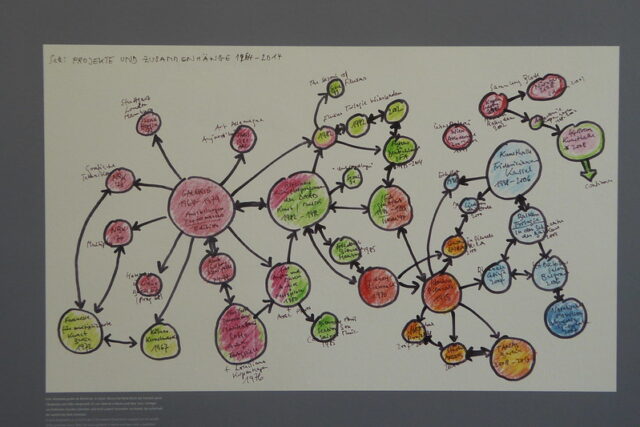What would a map of your career look like?
It only makes sense in hindsight
I’ve been on a maps kick recently writing about blog maps and roadmaps! Let’s talk about career maps…
Careers only make sense in hindsight. And for indie consultants it’s even worse - there are no well trodden paths. You have to kind of make it up as you go.
So I really love it when people show their messy, meandering careers. Three visualizations struck me recently:
1) Elena Verna
Elena Verna posted this great career map:
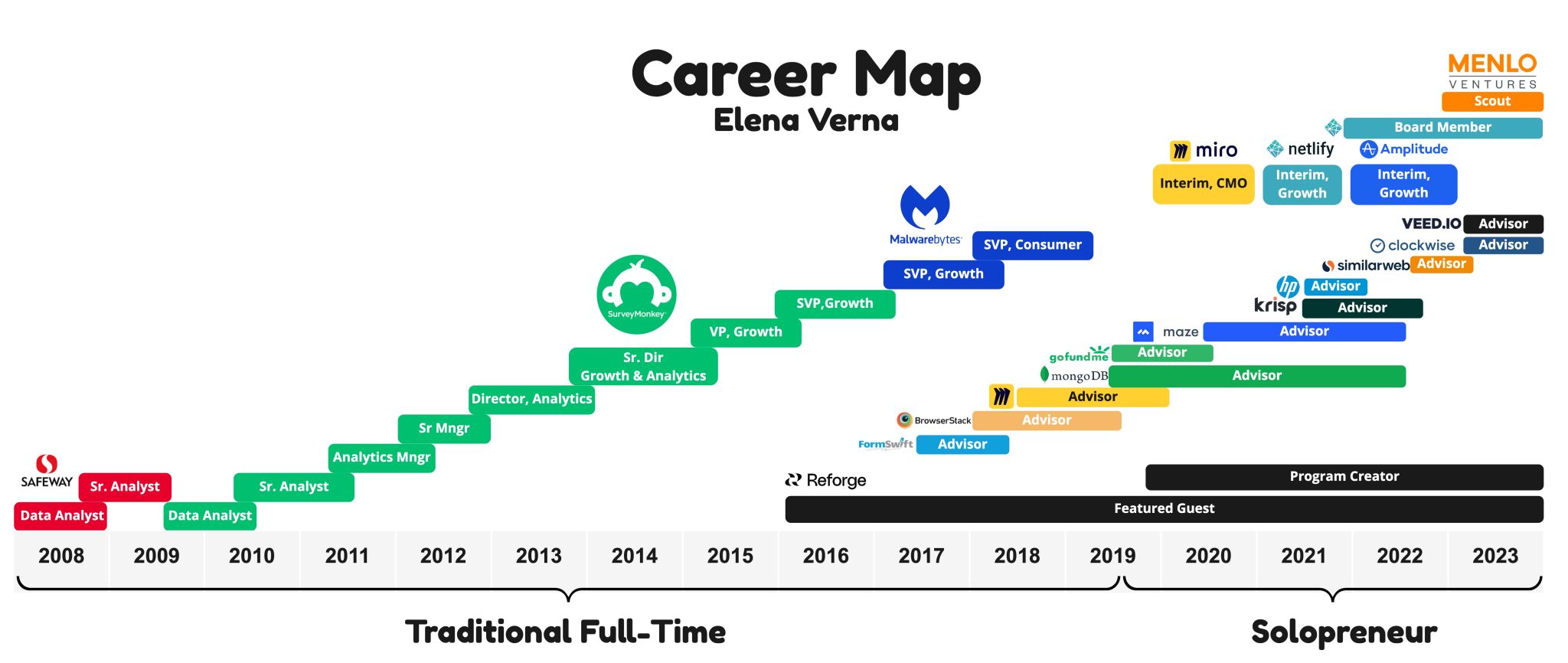
Read more about it and grab the Miro template to make your own here: https://elenaverna.substack.com/p/a-new-way-to-visualize-a-career-journey
2) Michael Sklar
Michael Sklar posted this great career map complete with paths NOT taken and pregnant with some great “maybes” for future possibilities:
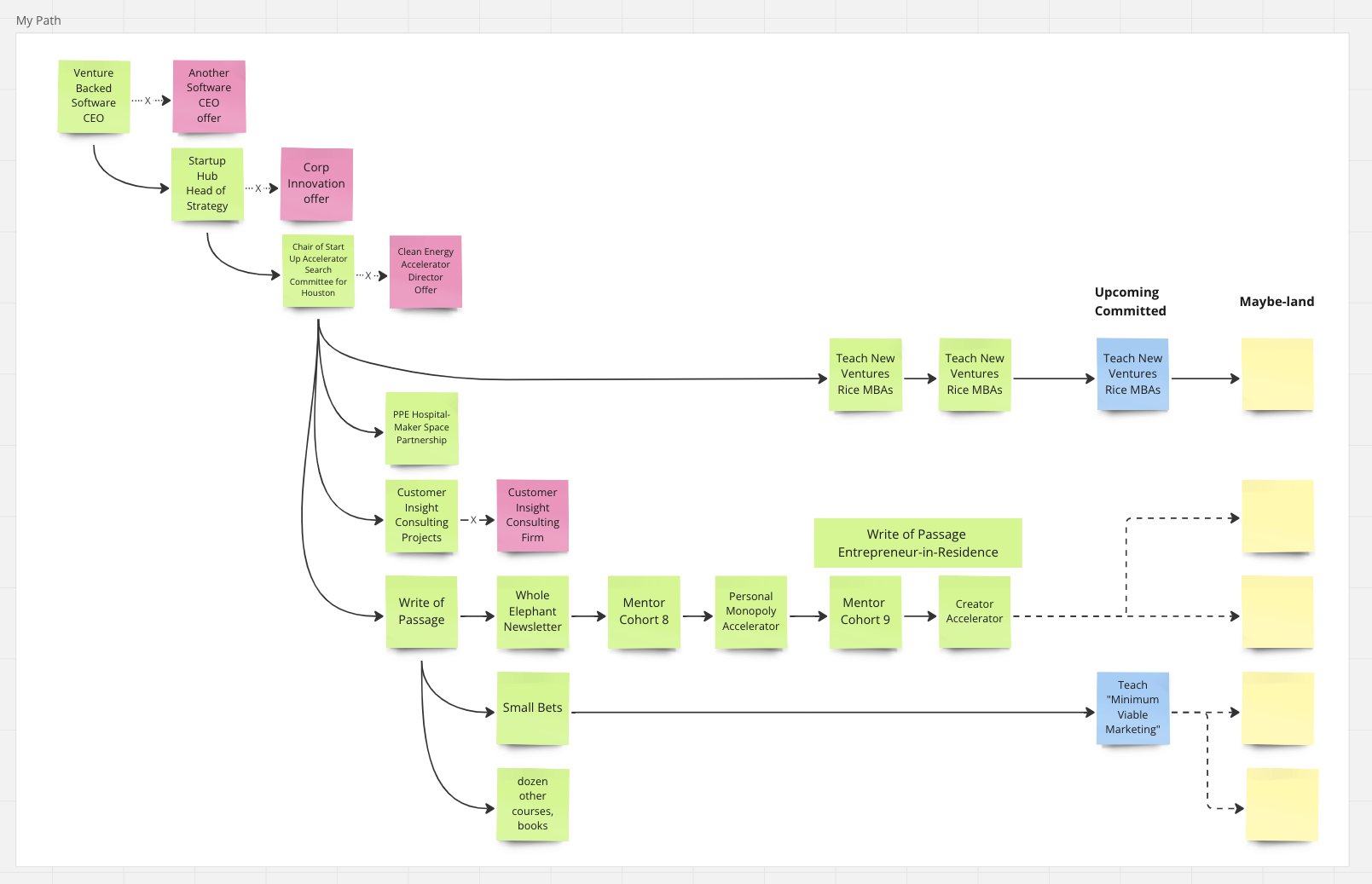
3) Will Larson
Will writes one of my favorite management blogs and posted this piece a while back exploring the idea of a forty-year career:
As you invest into your pace, the people you know, the prestige you build, the profits to fuel financial security, and your deep and broad learning, something magical starts to happen: each of these makes the others easier. This to me is the joy of a forty year career: things that seem hard early on become easy a decade in, and I can only imagine what it will look like two or three decades in.
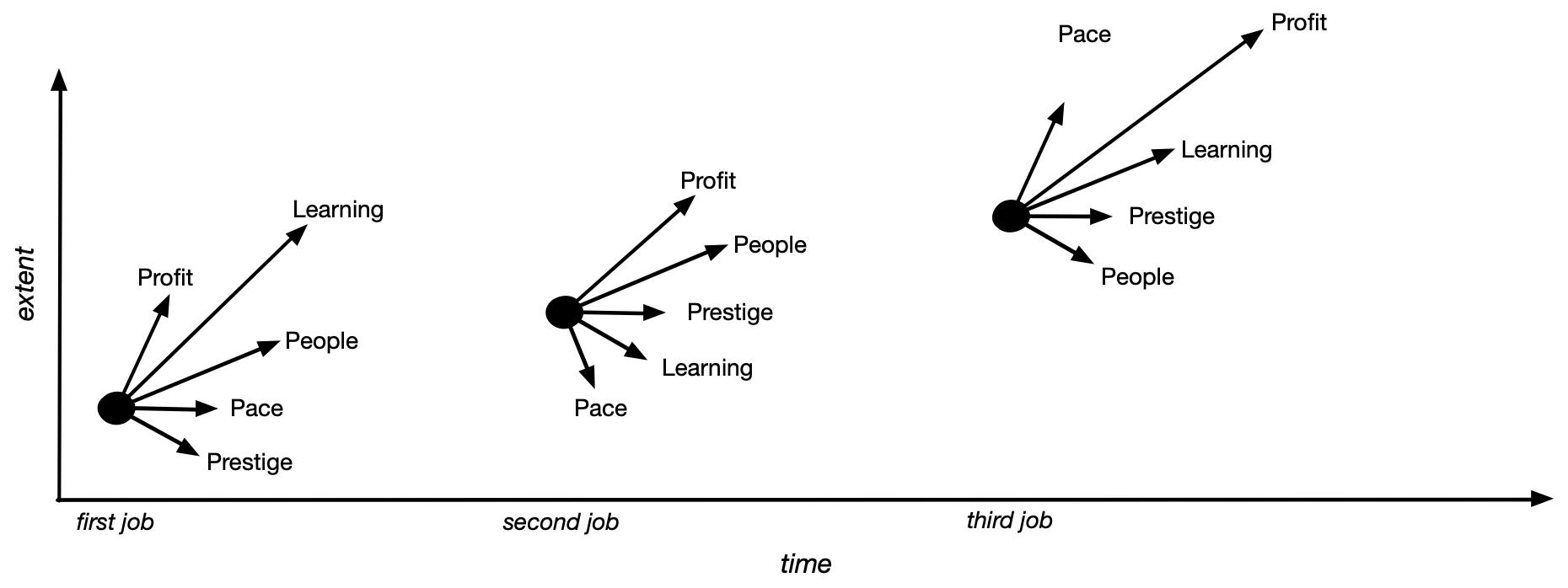
4) Venkatesh Rao
In Venkat’s excellent book Art of Gig he outlines the idea of leverage curves:
For people in paycheck careers, the “career path” is a familiar and useful long-term planning artifact. For free agents on the other hand, there is no such convenient construct, which makes meaningful long-term comparisons between paycheck and free-agent careers hard.
Worse, the lack of such a construct means free agents often fail to even imagine meaningful progression in the work lives, leading to increasing disenchantment through lack of growth.
So they do the same thing in Year 10 as they did in Year 1, not because they want to (which is a fine thing), but because they can’t imagine alternatives. Often, they end up rationalizing this lack of imagination (a bad thing) as lack of ambition (which can be piously spun as a holier-than-thou “good thing,” as in quitting the rat race and feeling superior to paycheck types).
And this great diagram:
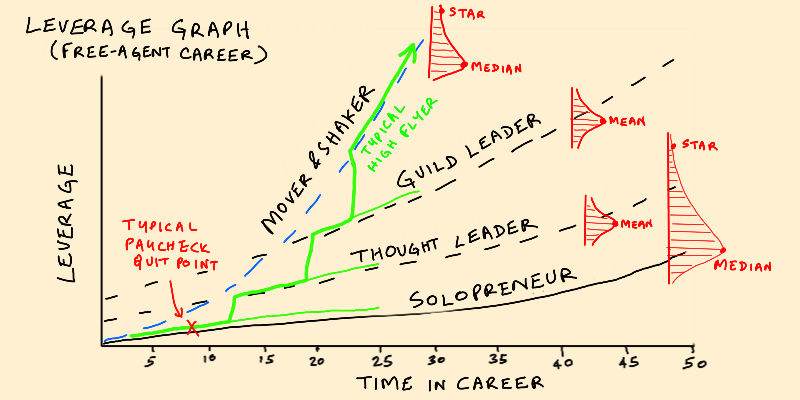
If you’re on the indie path - you gotta buy these books!
Permissionless Identities
All of these point to a kind of “career possibility space”. Who could you become? I wrote a Little Futures essay on the coming age of permissionless identities that touches on careers, identities and more:
For both full timers and independents, career growth in a permissionless world is increasingly going to be a modular and iterative process vs the step-change enabled by the old world of gatekeepers.
So don’t wait for permission. If you’re unsure about the future of your career - don’t look for answers, don’t look for validation or labels - look for experiments, new networks and narrative air-cover. And remember that this networked permissionless world has enabled the opportunity to simply write your way into a new way of thinking and being
Big futures are permissioned. Little futures are permissionless.
Navigating by an internal compass
One of my all time favorite Venkatesh posts fits this theme - how do you navigate a career, not by external factors but internal factors?
If it isn’t crystal clear, I am advocating the view that if you find that what you are doing is ridiculously hard for you, it is the wrong thing for you to be doing. I maintain that you should not have to work significantly harder or faster to succeed today than you had to 50 years ago. A little harder perhaps. Mainly, you just have to drop external frames of reference and trust your internal navigation on a landscape of your own strengths. It may look like superhuman grit to an outsider, but if it feels like that inside to you, you’re doing something wrong.
So, two ideas to ponder:
- How do you visualize your career past, present and future?
- What logic have you used to navigate by and how might you navigate the unknowns of your career futures?
–
Update 06/02/23:
Love this career map from artist René Block via Ton Zylstra:
During our visit to the Neues Museum in Neuremberg last week, this mind map stood out to me. Art collector, dealer and curator René Block (1942) made it as a sort of work autobiography for the period 1964-2014.
It stood out to me because it shows the evolution of his work, the connections between major phases and individual projects.
Working With Founders Who Have Conviction and Taste
April 16, 2024
March 20, 2024
This post was written by Tom Critchlow - blogger and independent consultant. Subscribe to join my occassional newsletter:
